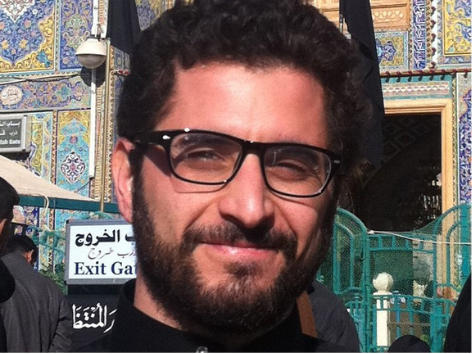Does treating Syria as a State Sponsor of Terrorism advance or hold back US national security interests?
In 1979, the United States designated Syria as a state sponsor of terrorism, putting it on its first-ever such list along with Libya, Iraq, and the former South Yemen. Syria is the last country from this original list to remain so designated today, a legal standing that helps support a US-led sanctions regime that started small in 1979, grew larger after the invasion of Iraq, expanded again in response to the Syrian government’s crackdown on protests in 2011, and grew once more after the passage of the Caesar Syria Civilian Protection Act in December 2019. Yet thinking about Syria through the lens of terrorism and counterterrorism today obscures almost as much as it reveals about US interests and the Syrian government’s decision-making ten years after the start of a devastating civil war in which hundreds of thousands have died, millions made refugees, millions more internally displaced, where half the country is now food insecure, and where an estimated half of young people between the ages of 18 and 25 have had a friend or close relative die in the conflict.
It is clear Bashar al-Assad’s government wants to survive by any means necessary. Twenty years ago, following the attacks on the United States on September 11, 2001, the Syrian government condemned al-Qaeda and Assad promised to work with the Bush administration to fight Salafi-jihadi-inspired terrorism. Today, the Assad regime supports terrorism of all stripes, whether carried out by the state against its own people, through longstanding ties to groups like Lebanese Hezbollah, or even partnerships of temporary convenience with groups inspired by the same ideology that drove terrorists to attack the United States on 9/11. To a certain extent, these terrorists provide strategic depth for a regime desperate to cling to power. More often, however, this partnership is based on temporary convenience rather than a strategic deployment of power.
More than thirty-five years ago, the sociologist Charles Tilly teased out a thought-provoking analogy that described modern nation-states as “quintessential protection rackets with the advantage of legitimacy.” While he could not have known how apt his analogy would be for Syria today, Tilly’s reflections at the time supported an academic trend in the study of revolutions and civil wars toward “bringing the state back in.” At the time, research on the subject of revolution had mostly focused on what was happening with the rebels (i.e., how did they organize? Under what conditions were they successful?). But states were complicated too, and their responses were crucial to determining the course of an uprising. Would the state make concessions to demonstrators, or fire on them? Would parts of the state, like the military, defect, or would they hold together?
There are two points worth considering to understand Syria as a US-designated state sponsor of terrorism. First, thinking about Syria as a protection racket wrapped with all the legal, institutional, and material trappings of statehood yields greater insights into its strategic decision-making than considering in isolation what it gets out of supporting terrorist groups. Second, the utility of the US designation, from a practical policy perspective, yields limited but not insignificant benefits for the United States.
In conclusion, treating Syria as a state sponsor of terrorism advances US national security interests, but not by much.
Firstly, Syria qualifies as a quintessentially Tillyan protection racket. You do not have to go far in a Syria discussion before you find yourself comparing the ruling Assad family to the fictional Corleone crime family in The Godfather trilogy. That the comparison is so banal is telling. For the past two decades, the debate among Syria observers has been less about how apt the analogy is, and more about whether Assad is the hapless Fredo Corleone or the ruthless (but unexpected) successor Michael Corleone.
Ten years into the Syrian civil war, the Assad regime is desperate both for resources and support in key constituencies, and pursues schemes in all the places we would associate with an organized criminal enterprise. The Economist recently called Syria a “narco-state,” with narcotics exports last year estimated to be at least $3.4 billion, more than twenty-seven times the county’s largest legal export, olive oil. Their reporting found that the Syrian state may not be formally involved, but it sanctions the production and trade of the illegal drug Captagon because the revenue from narcotics helps pay the salaries of soldiers the government cannot otherwise afford.
A more gruesome scheme is the extortion of families of detainees in Syria’s prison system. The Syrian government relies on millions of dollars of bribes to generate resources to compensate a network of security officials it cannot afford to adequately pay on its own. Based on more than one thousand interviews with families who had members forcibly “disappeared” by the Syrian security apparatus, a report by the Association of Detainees and the Missing in Sednaya Prison estimated those they interviewed paid a total of approximately $2.7 million in associated bribes and fees (i.e., for information on their loved one, to obtain a visit, or for the release of a family member). Extrapolating their results for the 250,000 Syrian citizens who have been arrested or released since 2011, the association estimates that approximately $900 million has been paid into this extortionist scheme since 2011.
Considering the Syrian government as an archetypal criminal enterprise helps us better understand when and under what conditions it cooperates with terrorist organizations. One convincing study on the “crime-terror nexus” found that, organizationally, cooperation between organized crime and terrorism, when it occurs, is based on tactical convenience rather than strategic alignment. Organized criminals seek to exploit gaps within the system, to their benefit. On the other hand, terrorist groups seek systemic change, and want to reduce the ability of the states in which they reside to govern; terrorist groups seek to present themselves as an alternative to the government. The two may cooperate, but that cooperation is limited and can also turn confrontational. ISIS’s campaign against Syrian government targets in 2020 is an example of how a collaboration of convenience between the Syrian state and a terrorist group operating in its territory turned into confrontation.
Secondly, from the US perspective, there are some practical applications of the state sponsor of terrorism designation of Syria that have utility for US national security purposes. The designation allows the United States and its allies to pursue legal action against people, organizations, and even the Syrian government itself when it is responsible for enabling terrorist attacks. Although criminal cases rarely result in convictions, nor civil cases in damages, that does not delegitimize the process of bringing these cases to light. Also, designation could help coerce change in the Syrian government. While it is arguable how much this is affecting the regime’s behavior now, in the event that the Syrian government changes in the future, sanctions related to the designation can be used as a bargaining chip to secure US interests, including for accountability for international crimes.
In conclusion, treating Syria as a state sponsor of terrorism advances US national security interests, but not by much. The limited benefits of designating a state like Syria as a state sponsor of terrorism can still be helpful, provided we do not expect much from them. That the United States kept up diplomatic relations on and off with Syria for many years despite declaring it a state sponsor of terrorism suggests this designation has utility for diplomacy. Yet the designation does not help much analytically in terms of understanding the strategic decision-making of the Syrian government. Finally, it is clear from Syria’s over forty-year history as a state sponsor of terrorism that much more than the consequences of it being so designated will be necessary to move the needle.
* * *

Nate Rosenblatt is a New America International Security program fellow, Oxford University doctoral student, and independent Middle East/North Africa consultant. He employs mixed-methods approaches to understanding local conflict and development dynamics in fragile parts of MENA states. He has lived, worked, and conducted field research in Turkey, Syria, Iraq, Lebanon, Morocco, Kuwait, and the United Arab Emirates.
Generously Supported By

Explore “The future of counterterrorism” series
Engage with our series as we continue forecasting the future of counterterrorism
Learn more about the Middle East and Scowcroft Middle East Programs
Learn more about Forward Defense

Forward Defense leads the Atlantic Council’s US and global defense programming, developing actionable recommendations for the United States and its allies and partners to compete, innovate, and navigate the rapidly evolving character of warfare. Through its work on US defense policy and force design, the military applications of advanced technology, space security, strategic deterrence, and defense industrial revitalization, it informs the strategies, policies, and capabilities that the United States will need to deter, and, if necessary, prevail in major-power conflict.
Image: A man walk past banners depciting Syria's President Bashar al-Assad, near damaged buildings, ahead of the May 26 presidential election, in Homs, Syria May 23, 2021. Picture taken May 23, 2021. REUTERS/Omar Sanadiki TPX IMAGES OF THE DAY